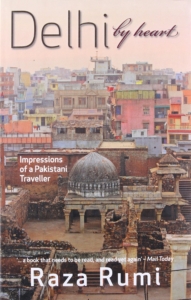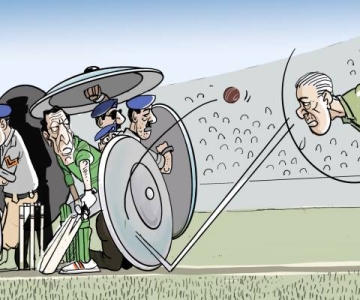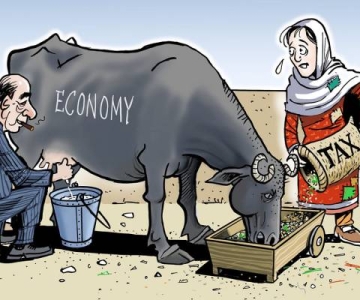Here’s a lovely review written by Rana Safvi over at her blog
“Dilli jo aik shahar tha aalam mai intikhaab
rahtay thay hee jahaan muntakhib rozgaar ke
us ko falak ne loot ke weeraan kar diya
hum rahne waale hain usii ujray dayaar ke”
This poignantly beautiful poem by Mir Taqi Mir symbolizes Delhi and for me is at the heart of the book by Raza Rumi as he lovingly traces the rise and fall of Delhi in his book “Delhi by Heart”.
It is rare that one comes across a book with a soul and this is a book which is all heart. It is an outpouring of love by a Pakistani based on his visits here.
I am ashamed to say that as someone born and brought up in UP which is Delhi’s neighbour and on my many subsequent visits I have never seen even half as much of Delhi as this ‘outsider’ has done.
Raza not only lived in Delhi during his visits, he lives Delhi in this book.
He takes his readers through the glory days of Delhi to the later trials and tribulations.
Through his eyes I revisited the Khanqaah of Hazarat Nizamuddin Auliya, paid my obeisance at the dargaah and danced in ecstasy swaying to the qawwalis of his beloved disciple Amir Khusrau.
I ate the biryanis and kebabs at Nizamuddin Basti, learnt of the history of cuisines which were born there and licked my fingers at the end.
For someone interested in the Sufi silsilas this book is a must read as it’s a virtual commentary on the advent of Sufism in India along with being a tour guide to all the dargaahs and khanqaahs housed in Delhi. In fact the Sufi theme is central to the book but then that was to be expected from a Rumi!
An additional treat for poetry lovers is that Raza has translated many of the verses of various Sufi saints and Delhi’s famous poets and he lovingly takes us through Ghalib’s Delhi .
Raza meets famous artists, writers living in Delhi and acquaints us with them too.
Ainee Baji, an aunt and a hugely admired childhood hero is so lovingly described as is her work.
But apart from the art and literature, architecture and saints, Raza also talks of the schizophrenia surrounding the partition, the hatred instilled and till date being promoted in the two neighbours and traces its roots.
Having grown up in the 60s and 70s the famous ‘foreign hand’ was a part of my consciousness and I see it echoed here when Raza discusses the ill will that is bred into the citizens through text books and disinformation.
For anyone unacquainted with Delhi this is a wonderful introduction. For a Delhite it is an eye opener.
Not to be missed at any cost.



